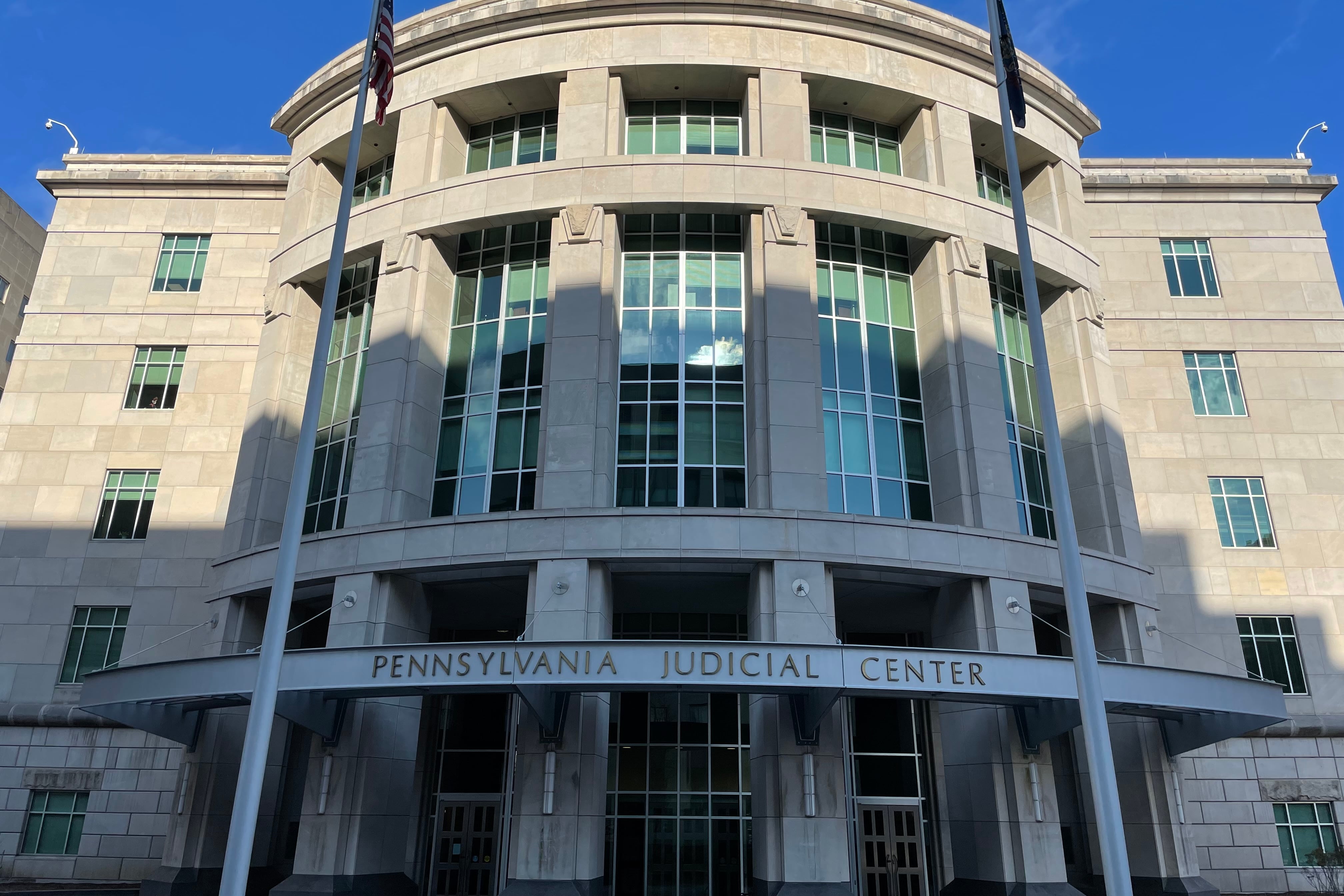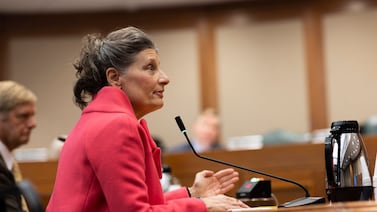Votebeat is a nonprofit news organization reporting on voting access and election administration across the U.S. Sign up for Votebeat Pennsylvania’s free newsletter here.
Pennsylvanians will head to the polls next month to vote in some distinctive contests.
The highest profile race this year is for three state Supreme Court justices hoping to remain on the bench. Also on the ballot, representing the smallest possible constituency, are candidates seeking to be precinct-level election workers.
And if you haven’t voted by mail since the 2024 presidential election, there are some changes that could affect you.
Here is what you need to know ahead of the Nov. 4 municipal election:
What are judicial retention elections?
In Pennsylvania, judges and justices on the state’s appellate courts are elected for 10-year terms. As their terms come to an end, jurists run for retention, which means another 10-year term.
When they first run for office, judges run in the primary and declare a political party. But when they run for retention, they’re not running against any other candidate, and no party affiliation appears next to their name on the ballot.
Voters will be asked to simply vote “yes” or “no” on whether the judges and justices should serve another term.
Yes-or-no retention races are the most common way state Supreme Court judges run for additional terms, but Pennsylvania’s combination of initially partisan elections followed by nonpartisan retention races is less common.
Retention campaigns in Pennsylvania are almost always successful. Only one state appellate judge, Supreme Court Justice Russell Nigro, has ever lost a retention race.
If a judge loses a retention vote, the governor, Josh Shapiro, a Democrat, would appoint a replacement to fill in until the next municipal election in 2027. The appointment is subject to confirmation by the GOP-controlled state Senate.
Read more about judicial retention elections.
Who are the judges up for retention?
Five statewide appellate court judges are up for retention this year, including three state Supreme Court justices.
Commonwealth Court Judge Michael Wojcik is running for another term, as is Superior Court Judge Alice Dubow, although that court does not handle election law issues.
On the state Supreme Court, Christine Donohue, Kevin Dougherty, and David Wecht will be on the ballot.
All five initially ran as Democrats, and the Pennsylvania Bar Association has recommended all five for retention.
Republicans are vigorously campaigning against retaining the judges, especially the state Supreme Court justices, and have repeatedly highlighted their rulings on election law cases. The justices have ruled on everything from gerrymandered congressional maps to rules surrounding mail voting. A key case on mail ballots is currently pending before them, and more election law cases are sure to arise during the 2026 midterm elections.
Read more about their election law rulings.
What are the races for election judge and inspector?
Voters will see a race on their November ballot that is uniquely Pennsylvanian: an election to choose their poll workers, the people who run their voting precincts.
Pennsylvanians have been voting on poll workers since at least 1799.
Some New England states have elected town officials who oversee polling places as part of their job. But according to a report from the U.S. Election Assistance Commission, Pennsylvania is the only state that directly elects officials whose sole responsibility is overseeing elections at the precinct level.
On the ballot are two races for three positions total. Voters will select one candidate for judge of elections and one for inspector of elections.
During the primary, Democratic and Republican voters in each precinct are supposed to nominate one candidate for judge, and each party nominates one candidate for inspector. In the fall, the election judge candidate with the most votes assumes the position. Of the two inspector candidates, the one who gets the most votes becomes the majority inspector, and the second-place candidate becomes the minority one.
The candidate spaces are often blank on the November ballot, since many races go without candidates in the primary. Poll workers are often elected with just a few write-in votes in the November election. If no one is elected, county officials will appoint poll workers.
Read more about Pennsylvania’s poll worker elections.
How will mail voting be different this year?
Since the 2024 presidential election, there have been two important court rulings on mail voting.
First, the 3rd U.S. Circuit Court of Appeals ruled in August that it is unconstitutional for Pennsylvania counties to reject mail ballots on the grounds that the return envelopes are undated or misdated. Counties have rejected ballots in the past for these reasons, and legal fights over the issue have gone on for years.
However, the issue is not yet settled. The case could still be appealed to the U.S. Supreme Court, and another case on the same issue is currently pending before the state Supreme Court. Election officials recommend always signing and dating your mail ballot return envelope, regardless of what recent court rulings say.
Last month, the state Supreme Court ruled that if counties know a mail ballot has a disqualifying error, such as lacking a signature on the return envelope, they have to notify voters before rejecting the ballots. These notifications will typically be sent to the email address the voter used when applying for a mail ballot.
The last day to request a mail ballot is Oct. 28
Carter Walker is a reporter for Votebeat in partnership with Spotlight PA. Contact Carter at cwalker@votebeat.org.




